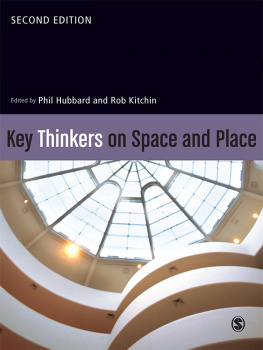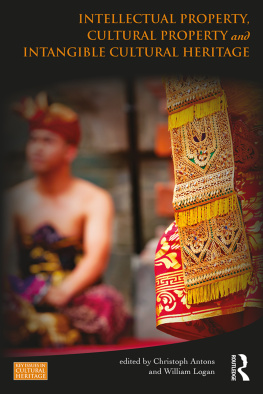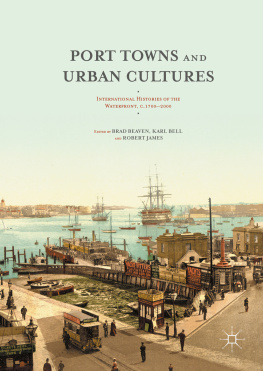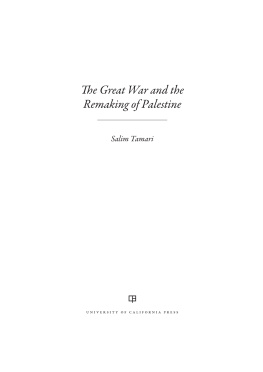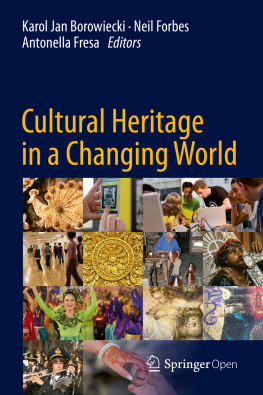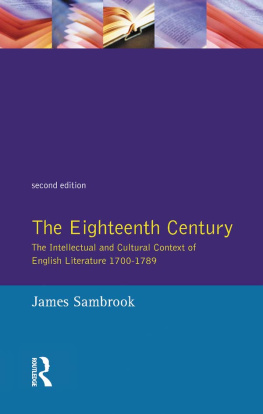THE THINKING SPACE
The Thinking Space
The Caf as a Cultural Institution in Paris, Italy and Vienna
Edited by
LEONA RITTNER
Independent Scholar, New York, USA
W. SCOTT HAINE
University of Maryland University College, USA
JEFFREY H. JACKSON
Rhodes College, Tennessee, USA
First published 2013 by Ashgate Publishing
Published 2016 by Routledge
2 Park Square, Milton Park, Abingdon, Oxon OX14 4RN
711 Third Avenue, New York, NY 10017, USA
Routledge is an imprint of the Taylor & Francis Group, an informa business
Copyright Leona Rittner, W. Scott Haine and Jeffrey H. Jackson 2013
All rights reserved . No part of this book may be reprinted or reproduced or utilised in any form or by any electronic, mechanical, or other means, now known or hereafter invented, including photocopying and recording, or in any information storage or retrieval system, without permission in writing from the publishers.
Notices:
Product or corporate names may be trademarks or registered trademarks, and are used only for identification and explanation without intent to infringe.
Leona Rittner, W. Scott Haine and Jeffrey H. Jackson have asserted their right under the Copyright, Designs and Patents Act, 1988, to be identified as the editors of this work.
British Library Cataloguing in Publication Data
The thinking space : the cafe as a cultural institution in Paris, Italy and Vienna.
1. Coffeehouses--Social aspects--France--Paris--History. 2. Coffeehouses--Social aspects--Italy--History. 3. Coffeehouses--Social aspects--Austria--Vienna--History. 4. Intellectuals--France--Paris--Social life and customs. 5. Intellectuals--Italy--Social life and customs. 6. Intellectuals--Austria--Vienna--Social life and customs. 7. Paris (France)--Intellectual life. 8. Italy--Intellectual life. 9. Vienna (Austria)--Intellectual life.
I. Rittner, Leona. II. Haine, W. Scott. III. Jackson, Jeffrey H., 1971
306.42094dc23
The Library of Congress has cataloged the printed edition as follows:
The thinking space : the cafe as a cultural institution in Paris, Italy and Vienna / edited by Leona Rittner, W. Scott Haine and Jeffrey H, Jackson.
pages cm
Includes index.
ISBN 978-1-4094-3879-3 (hardcover)
1. Coffeehouses--Social aspects--France--Paris. 2. Coffeehouses--Social aspects--Italy 3. Coffeehouses --Social aspects--Austria--Vienna. I. Rittner, Leona.
TX910.A1T47 2013
647.9544361dc23
2012043452
ISBN 9781409438793 (hbk)
Contents
W. Scott Haine
Herbert Lederer
Egon Schwarz
Shachar Pinsker
Tabetha Ewing
Franco Fido
Edward J. Ahearn
Grard-Georges Lemaire
Leona Rittner
Jeffrey H. Jackson
W. Scott Haine
Florin Berindeanu
Ted Emery
Ernesto Livorni
Stefano Giannini
Fannie Peczenik
Notes on Contributors
About the Editors
Leona Rittner (late) was an independent scholar who lived in New York. She published widely on French and Italian literature in publications such as Crisalda, La Follia di New York, Francographies, Concerns, Aufbau, the International Simone de Beauvoir Society Newsletter, and The Independent Scholar. She served on executive committees of the Modern Language Association (MLA) and Women in French; organized and chaired sessions and presented papers for the MLA and the Northeast Modern Language Association (NEMLA); and was the recipient of several grants, including from the NEMLA. She died in 2010.
W. Scott Haine is the author of The World of the Paris Caf: Sociability among the French Working Class, 17891914 (Johns Hopkins University Press, 1998); Culture and Customs of France (Greenwood Press, 2006); and The History of France (Greenwood Press, 2008). He teaches at University of Maryland University College.
Jeffrey H. Jackson is Associate Professor of History and Director of the Environmental Studies and Sciences Program at Rhodes College in Memphis, Tennessee. He is the author of Paris Under Water: How the City of Light Survived the Great Flood of 1910 (Palgrave Macmillan, 2010); Making Jazz French: Music and Modern Life in Interwar Paris (Duke University Press, 2003); and co-editor of Music and History: Bridging the Disciplines (University Press of Mississippi, 2005). He has published widely on issues of urban culture in Paris.
About the Contributors
Edward J. Ahearn is Professor of Comparative Literature and French Studies at Brown University. His books include Rimbaud: Visions and Habitations (University of California Press, 1983); Marx and Modern Fiction (Yale University Press, 1989); and Visionary Fictions: Apocalyptic Writing from Blake to the Modern Age (Yale University Press, 1996). He is the recipient of a Woodrow Wilson Fellowship, a Danforth Fellowship, a Fulbright Fellowship, and Distinguished Visiting Professorships at Brandeis and Wellesley.
Florin Berindeanu teaches classics and comparative literature at Case Western Reserve University. He has published articles on medieval literature, Dante, mysticism, and Vico as well as on modern literature and philosophy. Other publications include contributions to two volumes of the Dictionary of Literary Biography (Gale), a book study on Romanian Romanticism, and an essay on the philosophy of E.M. Cioran.
Ted Emerys research focuses on the theater and autobiography of the Venetian and Italian eighteenth century. He is the author of Goldoni As Librettist: Theatrical Reform and the drammi giocosi per musica (Peter Lang, 1990) and numerous articles on Goldoni, Gozzi, Chiari, and most recently Casanova. His translations, with Albert Bermel, of Carlo Gozzis Five Tales for the Theatre (University of Chicago Press, 1989) have been the basis of many professional performances, including a Broadway production of The Green Bird directed by Julie Taymor (2000).
Tabetha Ewing is Associate Professor of History at Bard College and Dean of Studies, Bard High School Early College. Her research interests are public life and popular culture in eighteenth-century Paris and royal politics in early modern France. Her book-length manuscript War, Diplomacy, and Public Opinion in the Age of High Enlightenment: The Official and Clandestine Media is under review. Current research is on French royal power, extradition, and the emergence of modern political subjectivity.
Franco Fido is Carl A. Pescosolido Professor of Romance Languages and Literatures (emeritus) at Harvard University and the author of books such as Nuova Guida a Goldoni: Teatro a societ nel Settecento (Einaudi, 2000); La Seriet del gioco: Svaghi letterari e teatrali nel Settecento (Pacini Fazzi, 1998); and Le inquietudini di Goldoni: saggi e letture (Costa & Nolan, 1995).
Stefano Giannini


